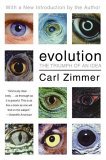(photo taken by Madhu Katti @ McKenzie Preserve near Fresno, California)
An interesting interview in Edge that you can also watch on video. Here's an excerpt that should tantalize:
A fundamental question in biology is how the functioning of collective systems works—whether you are dealing with the function of a tissue and how the cells within a tissue interact, or whether you're dealing with ecologies or even ecosystems. We really need to build a new understanding and new tools that allow us to integrate across these scales. People refer to top-down and bottom-up; in some sense we have to take both approaches to try to understand these systems.
There is no characteristic scale that is the right scale to observe a system—one of the reasons I studied animal groups is that the systems can be taken apart and put together very easily. Some of the models and the understanding that we get from how these groups function—we are all familiar with the dramatic collective patterns exhibited by schools of fish or flocks of birds—and the way we can take these systems—like an ant colony—apart to see how they really function gives us deep insights.
So one line of research is to do specific testable ideas on specific systems. But another line of research is to try to find the fundamental principles that underlie, for example, collective decision-making in biological systems. And what we find remarkable is, when we actually look at the algorithms used by, say, an ant colony, or used by a school of fish, when making collective decisions, at a certain level of description, the types of algorithms they use are also the types of algorithms we now know humans use in the visual system, for example, to make decisions about what we are seeing.
Natural selection has found these same principles time and time again and included them in different systems in different ways, but fundamentally the principles are the same. I think this is a growing new area of research; we are really trying to build across these different systems.
Ants have algorithms. If you think about an ant colony, it's a computing device; there's some wonderful work by Jean-Louis Deneubourg in Brussels and his collaborators that really started this field in a way with Ilya Prigogine and later on Jean Louis Deneubourg looking at the ways in which social insect colonies can interact. One example would be—it sounds trivial, but if you think about it, it is quite difficult—how can a colony decide between two food sources, one of which is slightly closer than the other? Do they have to measure this? Do they have to perform these computations?
[Read the rest at Edge: ANTS HAVE ALGORITHMS: A Talk with Iain Couzin]
[Hat-tip: 3 Quarks Daily]














0 comments:
Post a Comment